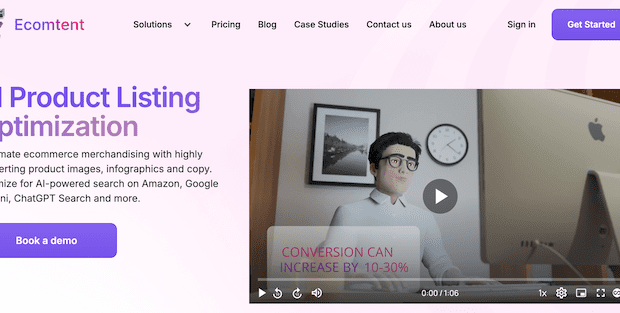Yext has launched Support Answers, a suite of enterprise search solutions built for customer support teams. The launch comes as people increasingly look online to find solutions independently, yet are unable to successfully resolve their issues. According to Gartner, 70 per cent of a business’s customers use self-service tools, but only 9 per cent can fully resolve their issues through these more automated channels. As a result, many ultimately end up turning to live support options, driving up costs for the business and increasing the time to resolution for already frustrated customers.
Yext’s AI-powered solutions, tailored for a range of support use cases, understand the meaning behind customer questions and deliver direct answers drawing from a business’s FAQs, product manuals, help articles, and more. By providing a comprehensive self-service solution, Yext streamlines the resolution journey not just for customers who search for information on a business’s website, but also for customer support agents who look for information in their internal portals while guiding customers through troubleshooting.
Yext’s Support Answers includes the following solutions:
- Help Site Search: Businesses can now implement Yext’s advanced natural language processing (NLP) on their help site so that when customers ask a support question in the search bar, they can get instant answers drawn directly from the business’s FAQs, guides, tutorials, videos, ebooks, product manuals, and more — without ever having to contact customer support. Multiple algorithms, including Extractive Question Answering (QA) and Semantic Text Search, enable the search experience to surface the best result instead of a list of hyperlinks. Consumers can currently see the solution in action on the help sites of Yext and Three UK, among others.
- Case Form Deflection: Businesses can proactively deflect customer support ticket submissions and provide another opportunity for customers to self-serve with case form deflection, which suggests relevant answers to customers as they are filling out the details of their issue.
- Agent Desktop Search: To reduce information silos and hold times for customers, businesses can centralise all support-related content in each agent’s internal portal. When agents have access to accurate, up-to-date information in one convenient location while working with a customer, they can troubleshoot more efficiently and drive faster case resolution.
- SEO for Help Centre: If customers ask support questions on a third-party search engine like Google, businesses can still answer those questions via search-optimised landing pages and synced FAQs that improve ranking on the results page and increase the chances of appearing as a featured snippet.
- In-App Support: With just a few lines of code, businesses can implement a digital concierge on their web, mobile, and desktop apps that expands into a dynamic, chat-like search experience. By providing customers with an intuitive way to get answers to their questions directly within an app, businesses can reduce unnecessary costs for their support team.
- Knowledge Base: Yext’s knowledge base solution hinges on the Yext Knowledge Graph, a central, brain-like database for businesses to store, view, edit, and approve all of their support-related information (and the relationships among that data). This solution allows teams to create their own self-service repository of information — complete with FAQs, support articles, product manuals, and more — that can be surfaced through a world-class search experience.
Just two weeks into Three’s use of Answers, the UK’s leading mobile service provider saw a 42 per cent reduction in customers who clicked “contact us” after using its site’s search feature, indicating that more customers were now able to find answers to their questions directly in the search results.
“Customers have consistently expressed their aversion to contacting customer support, but for the longest time, businesses have not had the technology powerful enough for them to resolve their issues independently,” said Marc Ferrentino, chief strategy officer at Yext. “Today, that changes with the launch of Support Answers, which leverages our platform’s multiple search algorithms to interpret people’s intent and deliver contextually relevant, direct answers in a way that meets consumers’ needs and expectations, and saves a business time and money.”








Share